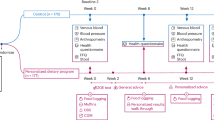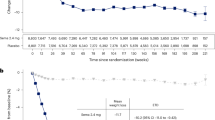Abstract
Objective: Antioxidants, in particular carotenoids, may influence the risk for cardiovascular disease. This study investigates the influence of oral contraceptives (OC) on the serum concentration of beta-carotene, which may in turn affect the risk of cardiovascular diseases due to its antioxidative impact.
Design: Cross-sectional epidemiologic study. Examinations included a detailed questionnaire on medical history and lifestyle factors, a 7 day food record, and blood samples.
Setting: National health and nutrition survey among healthy people living in private homes in West Germany in 1987–1988.
Subjects: Nonpregnant and nonlactating women aged 18–44 (n=610).
Results: Overall, the use of OC was negatively associated with serum beta-carotene concentration in bi- and multivariable analyses after adjustment for age, smoking, alcohol consumption, dietary intake of beta-carotene, use of vitamin supplements, body mass index, pregnancies, and serum concentrations of total triglyceride and cholesterol. A strong interaction between OC use and age on beta-carotene concentration was observed. While no relationship between OC use and serum beta-carotene was seen in the youngest age-group (18–24 y), there was a modest but significant negative association between OC use and beta-carotene levels among 25–34 y old women. The use of OC was associated with a strong decrease in beta-carotene levels among 35–44 y old women. The interaction between OC use and age could partly be explained by age dependent use of OC with higher estrogen content.
Conclusions: OC use seems to be strongly related to serum beta-carotene levels, particularly among women above the age of 35. Further studies are needed to clarify the underlying mechanisms of this association and its implications for health risks of OC use.
Sponsorship: The national health and nutrition survey was founded by the German Ministry of Research and Technology.
This is a preview of subscription content, access via your institution
Access options
Subscribe to this journal
Receive 12 print issues and online access
$259.00 per year
only $21.58 per issue
Buy this article
- Purchase on Springer Link
- Instant access to full article PDF
Prices may be subject to local taxes which are calculated during checkout
Similar content being viewed by others

Author information
Authors and Affiliations
Rights and permissions
About this article
Cite this article
Berg, G., Kohlmeier, L. & Brenner, H. Use of oral contraceptives and serum beta-carotene. Eur J Clin Nutr 51, 181–187 (1997). https://doi.org/10.1038/sj.ejcn.1600384
Received:
Revised:
Accepted:
Issue Date:
DOI: https://doi.org/10.1038/sj.ejcn.1600384
Keywords
This article is cited by
-
Association of dietary and plasma carotenoids with urinary F2-isoprostanes
European Journal of Nutrition (2022)
-
Relationship between intensity of night shift work and antioxidant status in blood of nurses
International Archives of Occupational and Environmental Health (2013)


